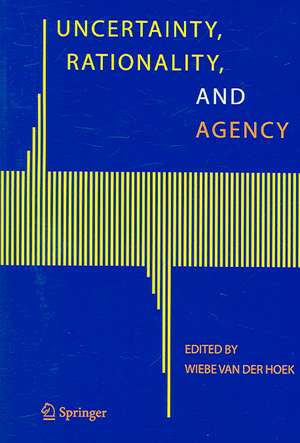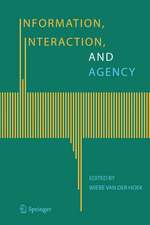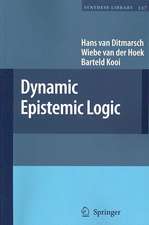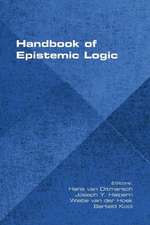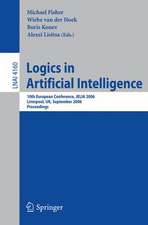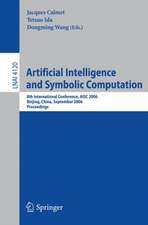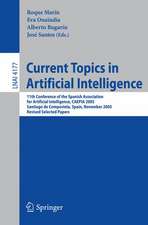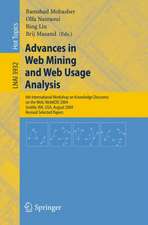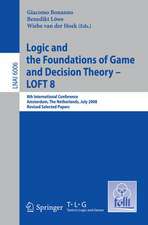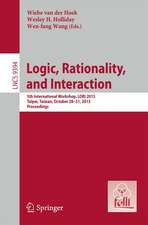Uncertainty, Rationality, and Agency
Editat de Wiebe van der Hoeken Limba Engleză Paperback – 24 apr 2006
Preț: 335.52 lei
Preț vechi: 419.39 lei
-20% Nou
Puncte Express: 503
Preț estimativ în valută:
64.20€ • 67.03$ • 53.13£
64.20€ • 67.03$ • 53.13£
Carte tipărită la comandă
Livrare economică 05-19 aprilie
Preluare comenzi: 021 569.72.76
Specificații
ISBN-13: 9781402046308
ISBN-10: 1402046308
Pagini: 350
Ilustrații: X, 350 p.
Dimensiuni: 155 x 235 x 19 mm
Greutate: 0.5 kg
Ediția:2006
Editura: SPRINGER NETHERLANDS
Colecția Springer
Locul publicării:Dordrecht, Netherlands
ISBN-10: 1402046308
Pagini: 350
Ilustrații: X, 350 p.
Dimensiuni: 155 x 235 x 19 mm
Greutate: 0.5 kg
Ediția:2006
Editura: SPRINGER NETHERLANDS
Colecția Springer
Locul publicării:Dordrecht, Netherlands
Public țintă
ResearchCuprins
The No Probabilities for Acts-Principle.- A Logic for Inductive Probabilistic Reasoning.- Rationality as Conformity.- On The Structure of Rational Acceptance: Comments on Hawthorne and Bovens.- Logic and the Foundations of the Theory of Games and Decisions: Introduction.- A Simple Modal Logic for Belief Revision.- Prolegomena to Dynamic Logic for Belief Revision.- From Knowledge-Based Programs to Graded Belief-Based Programs, Part I: On-Line Reasoning.- Order-Independent Transformative Decision Rules.- A Pragmatic Solution for the Paradox of Free Choice Permission.- A Logical Framework for Convention.
Textul de pe ultima copertă
This book is about Rational Agents, which can be humans, players in a game, software programs or institutions. Typically, such agents are uncertain about the state of affairs or the state of other agents, and under this partial information they have to decide on which action to take next.
This book collects chapters that give formal accounts not only of Uncertainty, Rationality and Agency, but also of their interaction: what are rational criteria to accept certain beliefs, or to modify them; how can degrees of beliefs guide an agent in making decisions; why distinguish between practical and epistemic rationality when agents try to coordinate; what must be common beliefs between agents about each other's rationality in order to act rationally themselves; can an agent assign probabilities to planned actions; how to formalise assumptions about a rational speaker in a conversation obeying Gricean maxims; how should a rational agent best represent the states, consequences, and acts that constitute the agent's rational decision problem?
This volume should appeal to researchers addressing issues in artificial systems that have to gather information in order to obtain Knowledge, reason about it and then make a Rational decision about which Action to take next.
This book collects chapters that give formal accounts not only of Uncertainty, Rationality and Agency, but also of their interaction: what are rational criteria to accept certain beliefs, or to modify them; how can degrees of beliefs guide an agent in making decisions; why distinguish between practical and epistemic rationality when agents try to coordinate; what must be common beliefs between agents about each other's rationality in order to act rationally themselves; can an agent assign probabilities to planned actions; how to formalise assumptions about a rational speaker in a conversation obeying Gricean maxims; how should a rational agent best represent the states, consequences, and acts that constitute the agent's rational decision problem?
This volume should appeal to researchers addressing issues in artificial systems that have to gather information in order to obtain Knowledge, reason about it and then make a Rational decision about which Action to take next.
Caracteristici
Goes across 'classical' borderlines of disciplines Unifies logic, game theory, and epistemics and studies them in an agent-setting Combines classical and novel approaches to uncertainty, rationality, and agency
